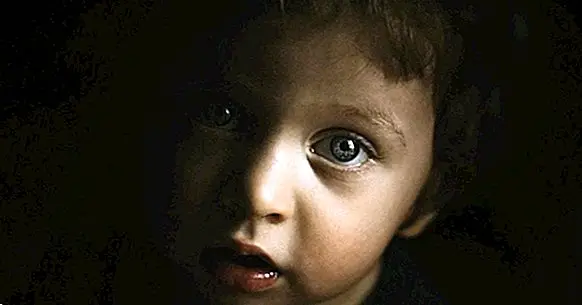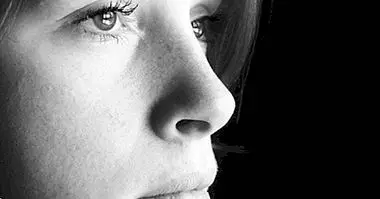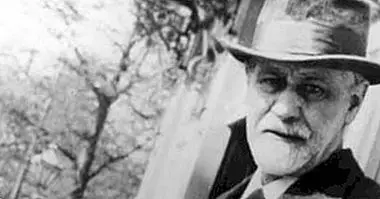Infantile amnesia: why do not we remember the first years of life?
What is your first memory? The answer to this question will be in most cases a situation or a brief image of some event or sensation that we experienced in our early childhood , mostly corresponding to when we were between three and five years old. But by then I had been alive for several years. Our brains already processed the information from the environment and we were even able to learn skills, information and ways of acting.
What happened before that first memory? Why can not we remember something before it, such as when we learned to walk or talk? The explanation to that void of memories has a name: it is called infantile amnesia .
- Related article: "Episodic memory: definition and associated parts of the brain"
What is infantile amnesia?
Infantile amnesia is defined as the inability to remember the phenomena and situations that occurred in our early childhood , at an autobiographical level. That is, we conserve, for example, the skills acquired in this stage (for example, walking or talking), but not how we did it.
This amnesia usually affects the memories that occurred before three years of age . In fact, when they ask us about our first memories, most people usually indicate some type of element or situation that they experienced from that moment on. Occasionally it is possible to remember some previous element, but it is not frequent and it would be limited to some very significant phenomenon or a sensation or image.
It has been shown that Babies have the capacity to generate memories, but quickly forget them . And even at an autobiographical level: five-year-olds can identify and remember a situation that happened when they had two. It is not that children under three do not have memory: they are able to remember what happens to them. Simply these memories disappear with time. Thus, what would happen would be an authentic amnesia since it is not that they do not exist but that they fade with time.
There are cases of people who claim to remember vividly previous phenomena. Although in some cases it could be like this, for the most part we will not be before an authentic memory but before an elaboration generated from the information that we have in the present (for example, from what our parents have told us that happened). And in many cases who says such a thing is not that he is lying, but has generated a false memory that is lived as true.
- Maybe you're interested: "The 6 stages of childhood (physical and psychic development)"
When does it appear?
This amnesia of the first events has always been observed in adults, but research shows that amnesia is already visible in childhood. Specifically, the experiments and investigations of Bauer and Larkina in 2013 indicate that in general infantile amnesia appears approximately after seven years of age .
In addition to this, these investigations have allowed us to observe that smaller children are capable of having more memories but nevertheless they were less clear and detailed, while the older ones were able to evoke phenomena in a much more extensive, exact and detailed way despite They did not remember their early years.
- You may be interested: "The different types of amnesia (and their characteristics)"
Why do not we remember anything from our early years?
The reason for childhood amnesia is something that has intrigued researchers dedicated to this area and has generated a lot of research in this regard. Although There is not yet a full consensus on the exact causes for which we are not able to remember practically anything of our first years of life, diverse hypotheses exist in this respect. Some of the best known are the following.
1. Linguistic hypothesis
Some authors consider that childhood amnesia is due to the lack of inadequate coding due to the absence or lack of language development , as a structure that allows organizing information. Until the development of this ability we would be using an iconic representation in which we would remember through images, but once the memory begins to be codified and organized through language, these first memories would end up weakening and later losing themselves.
2. Neurological hypothesis
There are also neurological hypotheses. In this sense some recent investigations seem to indicate that the absence of memory of this time could be linked to the immaturity of our brain and the neuronal overpopulation that we have during the first years of life.
During early childhood our hippocampus is submerged in a process of constant neurogenesis, dramatically increasing the number of neurons we have (especially in the dentate gyrus). This constant growth and creation of neurons makes it difficult to record information in a persistent and stable way, losing the autobiographical information.
The reason for this may be in the degradation of memories by replacing the new neurons pre-existing connections , or in the fact that the new ones are more excitable and are activated more than those that were already in the brain.
There may also be a connection between this oblivion and neural pruning, in which part of the neurons in our brain die preprogrammed to improve the efficiency of our nervous system and leaving only the most powerful and reinforced connections.
3. Hypothesis about the formation of the I
Another of the proposed explanations suggests that we are unable to remember our first moments because at those ages we still do not have a self-concept or an identity: we are not aware that we are, that we exist, with which there is no "I" from which we can elaborate a biography .
- You may be interested: "What is" the Self "in Psychology?"
4. Other hypotheses
In addition to these, we can find many other hypotheses that have been overcome by the development of Psychology. For example, from the classical psychoanalytic model it was proposed that oblivion is due to the repression of our instincts and the Oedipus conflict.
Bibliographic references:
- Bauer, P. J. & Larkina, M. (2013) The onset of childhood amnesia in childhood: A prospective investigation of the course and determinants of forgetting of early-life events. Memory.
- Josselyn, S. & Frankland, P. (n.d). Infantile amnesia: A neurogenic hypothesis. Learning & Memory, 19 (9), 423-433.
- Akers, K. G .; Martinez-Canabal, A .; Restivo, L .; Yiu, A. P .; From Cristofaro, A .; Hsiang, H. L. L .; Wheeler, A.L .; Guskjolen, A .; Niibori, Y .; Shoji, H .; Ohira, K .; Richards, B.A .; Miyakawa, T .; Josselyn, S.A. & Frankland, P. W. (2014). Hippocampal Neurogenesis Regulates Forgetting During Adulthood and Infancy. Science, 344 (6184), 598-602.



















